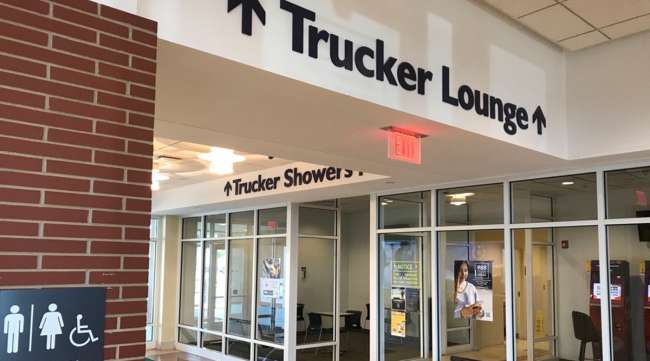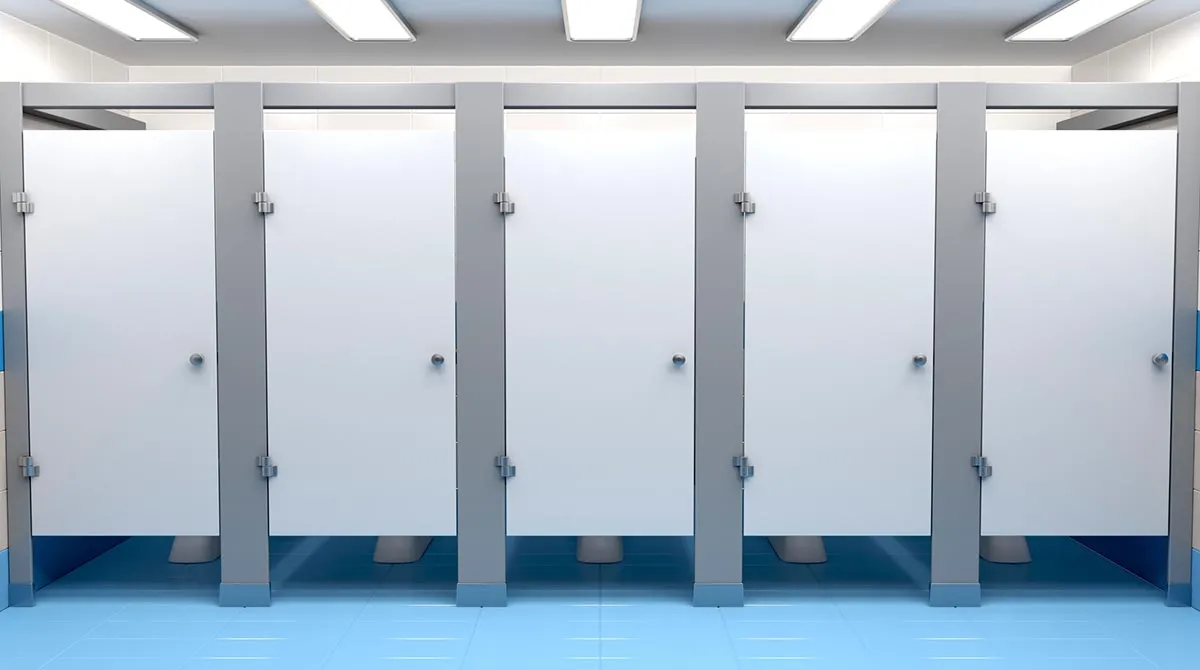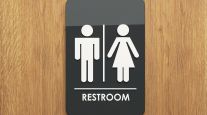Staff Reporter
Washington Passes Bathroom Access for Truckers Law

[Stay on top of transportation news: Get TTNews in your inbox.]
Starting July 23, a new law in the state of Washington will grant truck drivers expanded access to existing bathrooms operated by shippers and receivers, plus the ability to file complaints that could result in fines for violators.
Gov. Jay Inslee signed into law House Bill 1457 (an act relating to a motor carrier’s ability to access restroom facilities) after it passed both the House and Senate during the recent regular 2023 session of the 68th Legislature.
The legislation received broad bipartisan support as evidenced by its lead sponsor, state Rep. Eric Robertson (R), and co-sponsors Reps. Liz Berry, Sharon Tomiko Santos, Julia Reed and Mary Fosse, all Democrats. The House bill succeeded over a similar companion bill introduced during the session in the Senate.
The new law stipulates that truck drivers be allowed to use an existing bathroom facility located either on the premises of or operated by a shipper or consignee (receiver) if the restroom is intended to be used by their employees or customers.
The language of the law defines consignees as a person or business that takes delivery of property, cargo or materials transported in interstate or intrastate commerce from a motor carrier.
Bathrooms must not be located in an area where providing access would create an obvious health or safety risk to the motor carrier, the shipper, receiver or employees.
Other terms of the new law say shippers/receivers are not required to make any physical changes to a restroom and may have a company employee accompany a motor carrier to the restroom.
Responsible for enforcement, the state department of health may issue a warning letter to a shipper/receiver for a first violation and can impose for subsequent violations a Class 2 civil infraction with a $250 fine.
Sheri Call, president and CEO of Washington Trucking Associations, spearheaded the successful legislation that built on another law enacted last year giving truckers access to bathrooms at ports.

MileA/Getty Images
She said last year’s port bathroom access legislation didn’t go far enough in helping truckers and “drivers were complaining that it didn’t do what it needed to do since it got scaled back a little too much” by omitting retail, hospitality and other businesses.
“We’re not requiring restroom access where restrooms don’t exist. It’s not like we’re asking for restrooms to be built. We’re just saying if there’s a restroom you already have to provide for your employee at a location, that restroom should actually be accessible by truck drivers as well,” Call noted.
She noted that the state health department’s “Truck Driver Restroom Access at Ports” website link (with online and printed forms) for truckers to file complaints about bathroom denial allegations will be revised given the expanded bathroom access that will be mandatory.
“There’s a lot of complaints from drivers about these things. At least the website portal will give them an opportunity to lodge a complaint, and whether it will be acted on or investigated is yet to be determined. We’ll see how things go moving forward,” Call added.
She said enabling greater bathroom access to truck drivers is vital as the industry strives to diversify and hire more women drivers.
Want more news? Listen to today's daily briefing above or go here for more info
“Our hope is it will make life better, maybe a little easier or maybe send a signal that our truckers need to be taken care of. If we’re going to be attracting women to the industry, we need to do better in the industry to ensure safety and accommodation for women in the industry,” Call said. “We’ve got to be able to do better for drivers out there on the road, recognizing that bathroom access is a big deal.”
Another priority for WTA is working to increase truck parking in Washington state. U.S. Bureau of Transportation statistics for 2014, the latest figures available, indicate Washington has 69 parking spaces per 100,000 daily truck vehicle miles traveled and 78 spaces per 100 miles of truck travel on the national highway system. “Washington is way behind on the truck parking issue,” she noted.




